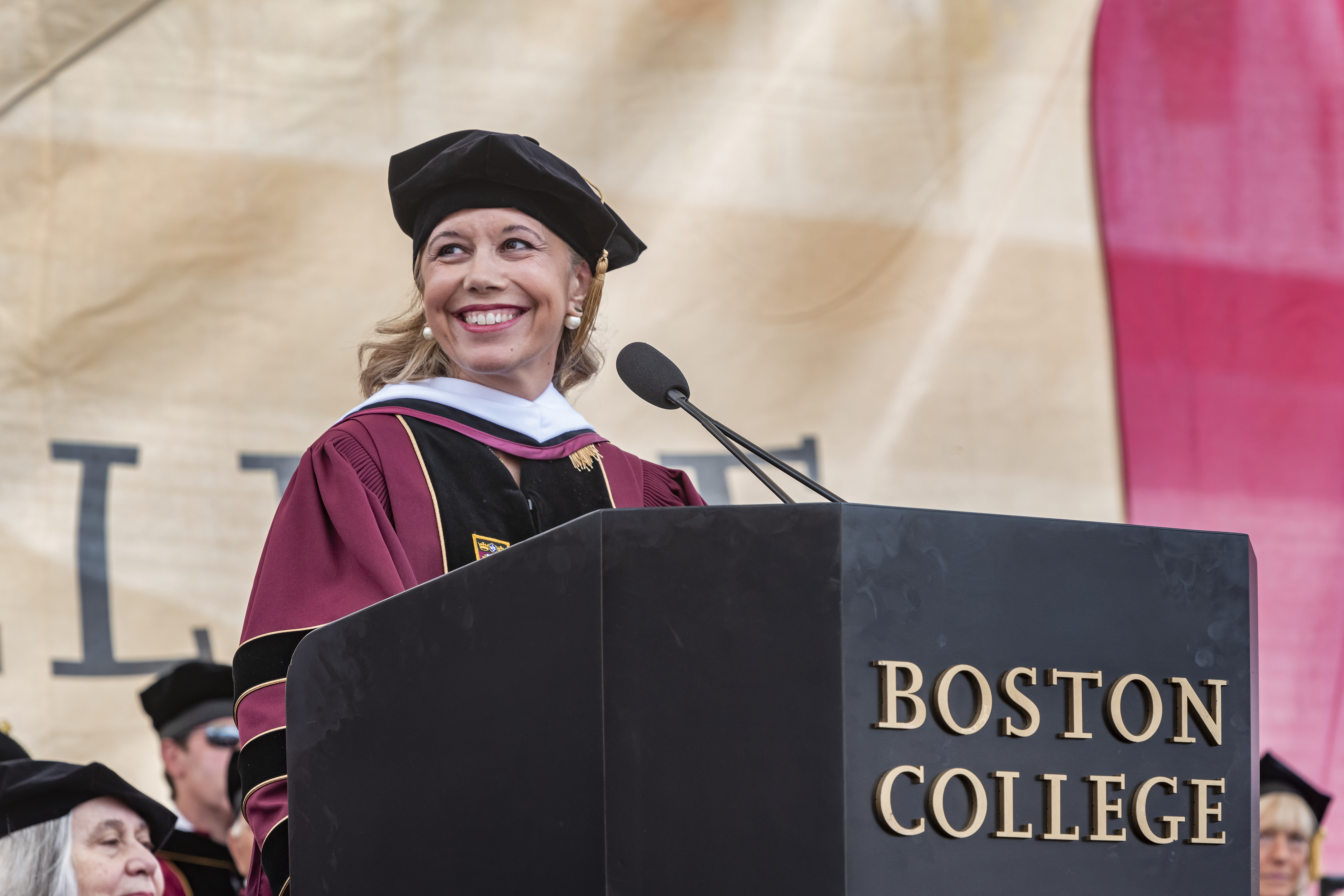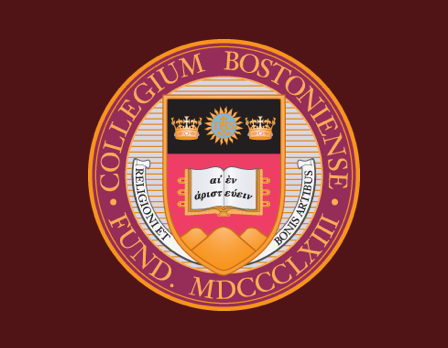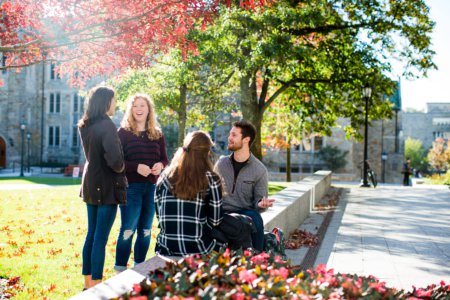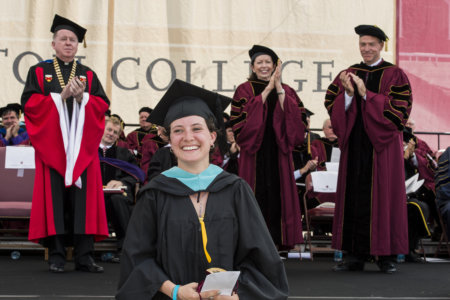Students at Boston College’s Robert J. Morrissey College of Arts and Sciences, the oldest and largest of the University’s eight graduate and professional schools, are focused on answering questions about the most pressing issues of our time. Rooted in personal, ethical and spiritual growth, this is a space for individuals to ask themselves big questions, like “what does the world need me to be?” and “how will my research improve the lives of others?”
“At Boston College, our students become women and men of depth of thoughtful and creative imagination, who are ready to engage the needs of our world and well-prepared for meaningful lives of leadership, scholarship, and service,” says Gregory Kalscheur, S.J., Dean of the Morrissey College of Arts and Sciences.
To facilitate these transformations, The Graduate School of Arts and Sciences offers PhD, MA and MS programmes in the humanities, natural sciences, and social sciences. They are led by faculty members who are leaders in their fields, such as Associate Professor of Psychology and Neuroscience Michael A. McDannald, who recently received a US$3.2 5million grant to support research crucial to the development of effective anxiety disorder treatments. “Our work will reveal threat signaling, prediction error computation, and specific fear behaviour organization by brainstem networks — knowledge that is crucial to the advancement of therapies to treat severe, ongoing anxiety that interferes with a persons’ daily activities,” said McDannald. “Fear in the face of danger is healthy, and helps us prevent harm. However, fear when a threat is unlikely, or when we’re actually safe, is detrimental to our well-being, and is central to anxiety disorders.”

Michael McDannald with project co-investigators: (l-r) postdoctoral fellow Mahsa Moaddab and graduate students Amanda Chu and Emma Russell. (Caitlin Cunningham)
A tight-knit community
With approximately 800 students and over 500 full-time faculty, Morrissey College is the ideal size for students to see the values of a liberal arts education put into action. With small class sizes, faculty members can offer more personalised instruction that prepares students to become engaged, effective world citizens. Such was the case for Shaun Slusarski, a PhD student in Theological Ethics.
“I chose BC’s theology programme because I could genuinely see myself working with any ethics faculty member on a dissertation project,” he shares. “Sure enough, throughout my time at BC, each of my professors has provided generous feedback on my work, assisted me in getting papers ready for conferences and publications, and respected me as an emerging colleague in the field.”
Meg Yoder, a PhD student in Earth and Environmental Sciences, agrees “The professors, post-doctoral fellows, and graduate students in my department conduct research across a wide range of topics, yet they still create a cohesive community where everyone can discuss what they’re working on and get feedback and ideas,”
Jorel Padilla, a PhD student in Biology, adds that when he first arrived, the graduate programme director shared that students aren’t viewed as subordinates. “Rather, the faculty here view us as colleagues who are simply earlier in their careers,” he says.
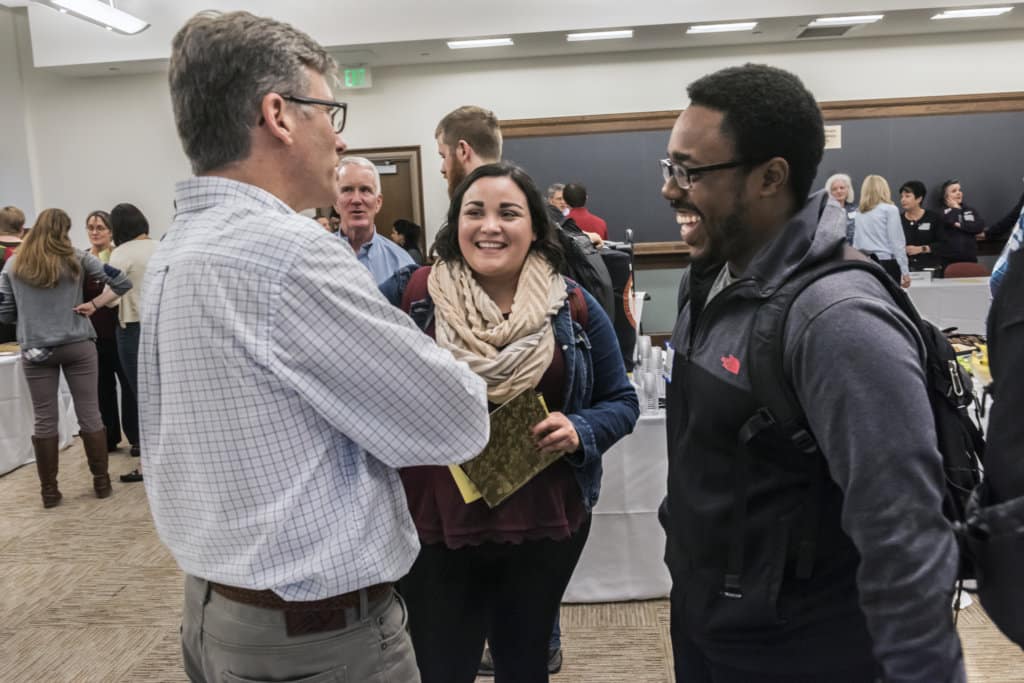
The faculty at Boston College are renowned researchers and dedicated teachers and mentors. Source: Boston College
World-class research and impactful facilities
The University has over 35 research centres and institutes and has set new records in sponsored research grants and sponsored funding activities in each of the past 10 years.
As an “R1” institution — a designation assigned to universities with the highest levels of research activity — there’s no shortage of prominent scholars and innovative researchers who create new knowledge, influence policy, and improve communities. Students thrive within a community of scholars who are driven and engaged in the work that they are doing — which in turn inspires and supports their research and scholarship.
Facilities here support and complement the University’s strong research activity. The Schiller Institute for Integrated Science and Society, for example, is a 150,000 square-foot science facility that supports research addressing critical societal issues in areas of energy, health and the environment.
Recently, Boston College has made strategic investments to elevate doctoral student stipends. All funded doctoral students will receive an academic-year stipend of at least US$30,000 in 2023-24 and more than 1,750 graduate students will be covered under the University’s health plan.
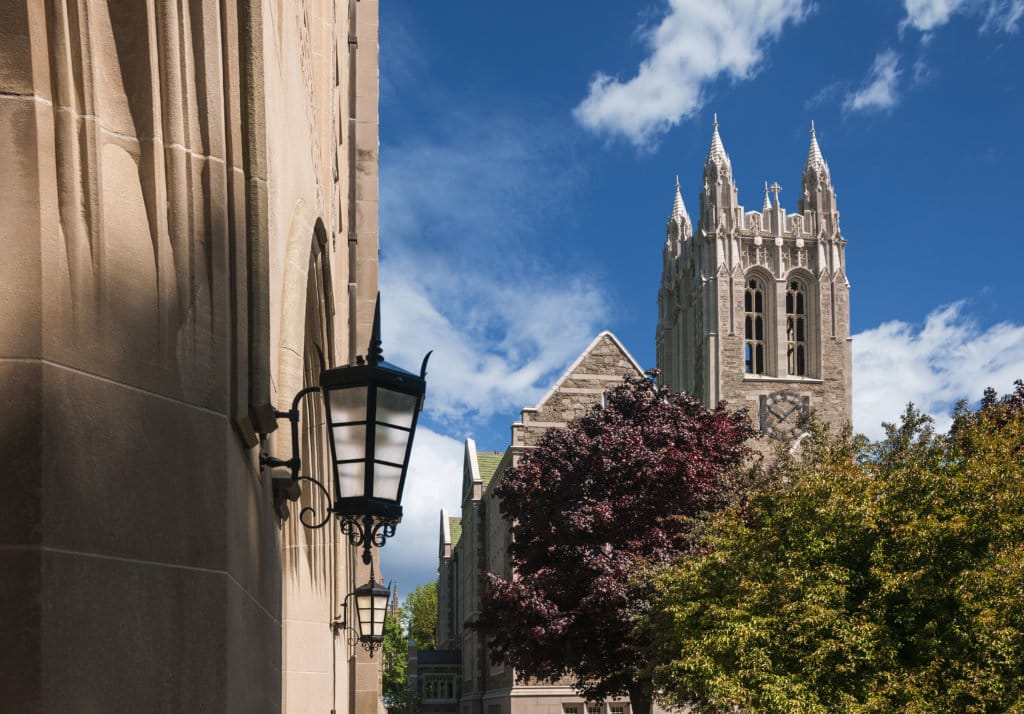
Boston College is committed to ensuring that students have the funding and resources necessary for their success. Source: Boston College
Exploring the city of Boston
Home to more than 35 colleges and universities, Boston is the intellectual beating heart of the country. When they’re not advancing their scholarship and research, students can unwind at some of the nation’s best art museums and cultural institutions. A vibrant art, music, and sports scene also make Boston a dynamic backdrop for learning, living, and growing as a professional
Whether students live in the leafy neighbourhoods near campus or downtown, they’ll stand to benefit from rich internship and career opportunities in research, education, tech, nonprofits, and finance available here. Academic talks and gatherings are often hosted on the city’s many campuses as well.
This strategic location draws students to Boston College like Julia Fraone, who was excited about how the college perfectly balanced the “campus feel” with easy access to the city. “There’s really no better place to have those two things than Boston College,” she shares.
To learn more about graduate admissions, click here.
Follow Boston College on Facebook, Twitter, Instagram and YouTube.

